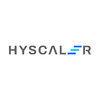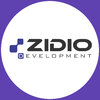Filter interviews by
Suzlon Global Services Interview Questions and Answers
28 Interview questions
Implementing effective strategies can significantly enhance payment collection efficiency and cash flow management.
Clear Contract Terms: Ensure that payment terms are clearly defined in contracts to avoid misunderstandings. For example, specify due dates and penalties for late payments.
Regular Follow-ups: Establish a routine for following up on outstanding invoices. For instance, send reminders a week before the d...
Managing Right of Way issues involves strategic planning, stakeholder engagement, and compliance with legal frameworks.
Stakeholder Engagement: Regularly communicate with landowners and local communities to address concerns and build trust. For example, hold public meetings to discuss project impacts.
Legal Compliance: Ensure all necessary permits and legal requirements are met before commencing work. This includes ...
Climbing 160 meters without a lift is physically challenging but possible with proper training and techniques.
Physical fitness is crucial; regular training can enhance endurance and strength.
Use of climbing gear, like harnesses and ropes, can aid in safety and efficiency.
Break the climb into segments; take breaks to avoid fatigue.
Consider the environment; climbing a staircase is different from a rock face.
Blade repair preparation involves assessing damage, selecting appropriate materials, cleaning the area, and following repair procedures.
Assess the extent of damage to determine the repair needed
Select appropriate materials for the repair, such as composite patches or fillers
Clean the damaged area thoroughly to ensure proper adhesion of repair materials
Follow repair procedures provided by the blade manufacturer or ...
My current CTC is $70,000 per year.
My current CTC is $70,000 per year
CTC stands for Cost to Company
It includes salary, bonuses, benefits, and any other perks provided by the company
My expected CTC is based on my experience, skills, and the industry standards.
Consider my years of experience in the industry
Take into account my relevant skills and certifications
Research the current industry standards for Shift Engineers
Provide a competitive salary based on the market trends
A transformer is an electrical device that transfers electrical energy between two or more circuits through electromagnetic induction.
Consists of two coils of wire (primary and secondary) wrapped around a core
Primary coil receives electrical energy and creates a magnetic field
Magnetic field induces a voltage in the secondary coil, transferring energy to the secondary circuit
Used to step up or step down voltage lev...
A circuit breaker is an electrical switch designed to protect an electrical circuit from damage caused by excess current.
A circuit breaker automatically interrupts the flow of electricity when it detects a fault or overload in the circuit.
It is designed to prevent overheating and potential fires in electrical systems.
Circuit breakers come in different types such as thermal, magnetic, and hybrid.
Examples of circuit...
A current transformer is a type of instrument transformer that is used to step down high currents to a lower, more manageable level for measurement and protection purposes.
Used to measure high currents in power systems
Consists of a primary winding and a secondary winding
Output current is proportional to the input current
Commonly used in conjunction with ammeters and protective relays
Example: A 1000:5 current trans...
Current and voltage are two fundamental concepts in electrical engineering.
Current is the flow of electric charge in a circuit, measured in amperes (A).
Voltage is the potential difference between two points in a circuit, measured in volts (V).
Current is the rate at which charge flows, while voltage is the force that drives the flow of charge.
Ohm's Law relates current, voltage, and resistance: V = I * R.
In a simple...
Suzlon Global Services Interview Experiences
48 interviews found
I appeared for an interview in Mar 2025, where I was asked the following questions.
- Q1. Break down question
- Q2. PM related questions
- Q3. Previous company related questions
Interview Preparation Tips
(5 Questions)
- Q1. Electrical engineer
- Q2. Bio and background
- Q3. Collage and subject
- Q4. Equipment and check
- Q5. Electrical question
(1 Question)
- Q1. What is PM Pm is preventive maintenance
- Ans.
PM stands for Preventive Maintenance, which involves regularly scheduled maintenance tasks to prevent equipment failure.
PM involves routine inspections, lubrication, adjustments, cleaning, and parts replacement to prevent breakdowns.
Examples of PM tasks include changing air filters in HVAC systems, greasing bearings on machinery, and inspecting electrical connections.
Preventive maintenance helps to extend the lifespan ...
I applied via Walk-in and was interviewed in Apr 2024. There was 1 interview round.
(3 Questions)
- Q1. What is current transformer
- Ans.
A current transformer is a type of instrument transformer that is used to step down high currents to a lower, more manageable level for measurement and protection purposes.
Used to measure high currents in power systems
Consists of a primary winding and a secondary winding
Output current is proportional to the input current
Commonly used in conjunction with ammeters and protective relays
Example: A 1000:5 current transforme...
- Q2. What is transfomer
- Ans.
A transformer is an electrical device that transfers electrical energy between two or more circuits through electromagnetic induction.
Consists of two coils of wire (primary and secondary) wrapped around a core
Primary coil receives electrical energy and creates a magnetic field
Magnetic field induces a voltage in the secondary coil, transferring energy to the secondary circuit
Used to step up or step down voltage levels i...
- Q3. What is circuit breaker
- Ans.
A circuit breaker is an electrical switch designed to protect an electrical circuit from damage caused by excess current.
A circuit breaker automatically interrupts the flow of electricity when it detects a fault or overload in the circuit.
It is designed to prevent overheating and potential fires in electrical systems.
Circuit breakers come in different types such as thermal, magnetic, and hybrid.
Examples of circuit brea...
- Q1. How was SAP system hena different
- Q2. How was SEL and BTG material spares material stock data kept record
- Q1. Related to wind energy
- Q2. Related to wind turbine generator
I applied via Walk-in and was interviewed in Jul 2023. There were 3 interview rounds.
My family back ground, education and current job work,
(2 Questions)
- Q1. Work experience and knowledge
- Q2. Materials issue, received starting to end process and 5s details, computer knowledge,SAP knowledge, materials stacking, preservation knowledge etc.
(2 Questions)
- Q1. Salary discuss and benefits
- Q2. Salary structure
(2 Questions)
- Q1. Electricity & electronic what is the difference
- Ans.
Electricity is the flow of electric charge, while electronics deals with the control and manipulation of electrical energy.
Electricity refers to the flow of electric charge through conductors.
Electronics involves the design and application of electronic circuits and devices.
Electricity is a fundamental concept in physics, while electronics is a branch of engineering.
Examples of electricity include lightning and the flo...
- Q2. Carrent & voltage what is the difference
- Ans.
Current and voltage are two fundamental concepts in electrical engineering.
Current is the flow of electric charge in a circuit, measured in amperes (A).
Voltage is the potential difference between two points in a circuit, measured in volts (V).
Current is the rate at which charge flows, while voltage is the force that drives the flow of charge.
Ohm's Law relates current, voltage, and resistance: V = I * R.
In a simple anal...
Interview Preparation Tips
I applied via Campus Placement
(1 Question)
- Q1. Diffrent type of transformer
- Ans.
Different types of transformers include power transformers, distribution transformers, instrument transformers, and autotransformers.
Power transformers are used to step up or step down voltage for transmission and distribution.
Distribution transformers are used to supply lower voltage to end-users.
Instrument transformers are used for measuring voltage and current in power systems.
Autotransformers have a single winding ...
Interview Preparation Tips
I applied via Walk-in and was interviewed in Feb 2024. There was 1 interview round.
(1 Question)
- Q1. All domain knowledge about Six Sigma, PM ,HYPM , Generator ,Gearbox , Transformer
Top trending discussions






Suzlon Global Services Interview FAQs
The duration of Suzlon Global Services interview process can vary, but typically it takes about less than 2 weeks to complete.
Tell us how to improve this page.
Suzlon Global Services Interviews By Designations
- Suzlon Global Services Engineer Interview Questions
- Suzlon Global Services Electrical Engineer Interview Questions
- Suzlon Global Services Assistant Manager Interview Questions
- Suzlon Global Services Maintenance Engineer Interview Questions
- Suzlon Global Services O&M Engineer Interview Questions
- Suzlon Global Services Junior Engineer Interview Questions
- Suzlon Global Services Senior Manager Interview Questions
- Suzlon Global Services Service Engineer Interview Questions
- Show more
Interview Questions for Popular Designations
Overall Interview Experience Rating
based on 41 interview experiences
Difficulty level
Duration
Interview Questions from Similar Companies
Suzlon Global Services Reviews and Ratings
based on 426 reviews
Rating in categories
|
Engineer
136
salaries
| ₹2 L/yr - ₹5.5 L/yr |
|
Electrical Engineer
134
salaries
| ₹1.8 L/yr - ₹4.5 L/yr |
|
Junior Engineer
89
salaries
| ₹1.9 L/yr - ₹4.5 L/yr |
|
Senior Engineer
81
salaries
| ₹3.3 L/yr - ₹7.2 L/yr |
|
Assistant Manager
73
salaries
| ₹5 L/yr - ₹9.9 L/yr |

Marpu Foundation

Huawei Technologies

HCL Infosystems

Z X Learning
- Home >
- Interviews >
- Suzlon Global Services Interview Questions












